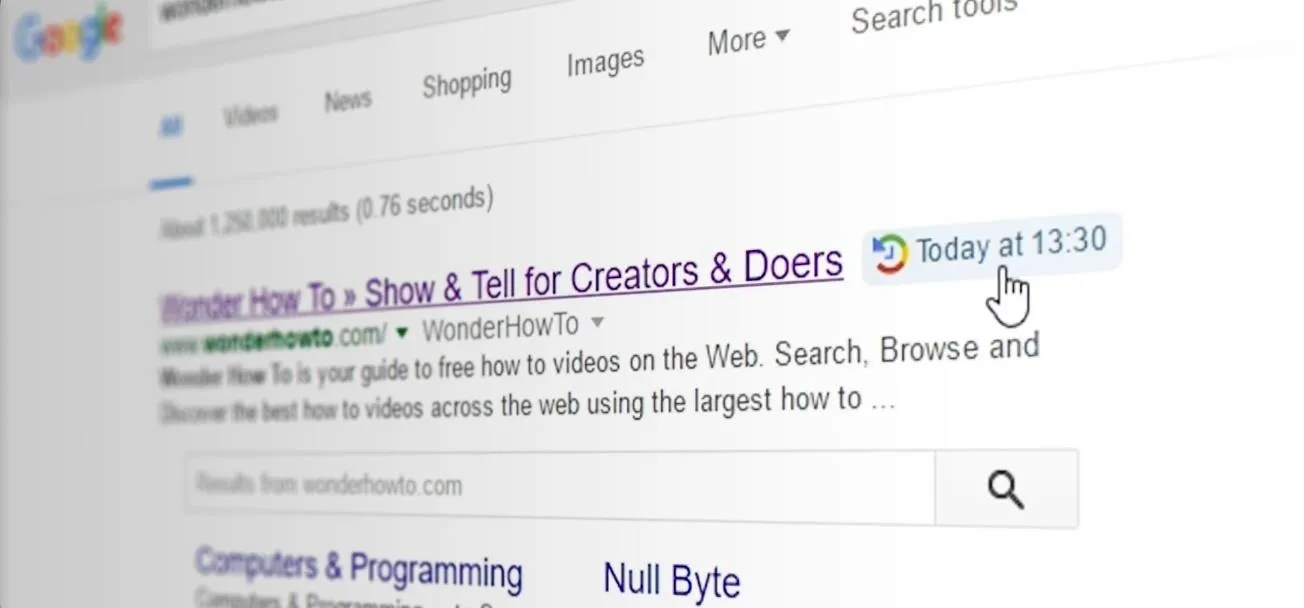Back in the eighties, I used to hate television commercials, but I eventually got used to them. Had to, in order to enjoy my favorite shows. Then, the increasing number of billboard ads annoyed me in the nineties. They followed me everywhere I went—no escape—persuading me to buy the newest whatever. It seemed like Big Brotherism—like They Live. But, I got used to it. When I finally entered the digital age and became a web addict, I was peeved at the constant sight of online ads everywhere I visited. My rage eventually passed and... I got used to it. Had to.

But now that the whole world is connected to the Internet, advertisers are upping their game even more, with behavioral targeting. It's been around for a while, and if you've never heard of it—fine, then listen up—because you've been a target of it regardless.
Advertising is absolutely necessary on the web to keep all of that content you love and enjoy free. If there wasn't any advertising, none of us would be addicted to the web because we couldn't afford it. We would be paying for anything and everything. So, whenever you see an ad on a website, you can choose to check it out or ignore it. Whatever you want. Fine—get used to it.
Behavioral Targeting Across the Web
Reasonably, those advertisers want a return on their investment, and that's where user demographics come into play. It wouldn't seem right to waste money marketing the newest Ford truck to a quadriplegic, so online marketers went on their quest to make online ads more targeted, more relevant. And website owners learned that the more focused the ads were, the more advertisers would pay them.

Hence, the current world of behavioral advertising. And, well... that's something you DON'T have to get used to, because now you have an online privacy issue.
Behavioral targeting tracks and analyzes your online behavior, tracking what you search for, what websites you visit and what services you use. This could be used to determine what ads are shown to you and where, even having the same ad follow you from site to site, a practice known as retargeting (or remarketing). Outside the advertising industry, most call it stalking.
Is this not an invasion of your privacy?
There's tons of behavioral advertising companies out there now, and you'd be surprised at how many are actually tracking your web usage. But you can stop them!
Opting Out with NAI
The most straightforward approach to combating targeted web ads is via the Network Advertising Initiative (NAI), a cooperative of online marketing and analytics companies that, straight from the horse's mouth, are "committed to building consumer awareness and establishing responsible business and data management practices and standards. As increasingly sophisticated online advertising technologies evolve, consumer concerns about their impact on online privacy mount. The NAI is prepared to meet these concerns with both effective industry self-regulation and sensible protections for online consumers."
To start taking control of your privacy, go to their Opt-Out tool. On that webpage, you can see just how many of those member companies have placed an advertising cookie file on your computer. To me, it was an alarming number—the vast majority!

Once you've regained your composure, proceed to clear all of the cookies or just the ones you want. You can check back to review your opt-out status.
Warning
- This does NOT mean you won't see ads anymore—opting out only means you won't receive ads specifically tailored to your online actions.
Now, you may actually like a few of your ads to be relevant to you, so only opt-out of the ones you're sure about.
If you want an easier way and more options, there's another project to consider...
Opting Out with PrivacyChoice
PrivacyChoice.org offers a more advanced solution, which includes features like a consolidated opt-out bookmark that opts you out of over a hundred ad networks, including those in the NAI.
On their site, you can view what websites use what advertisers to track you online, a nifty feature that shows just how common it is across the web.

In the above example, 14 out of 14 were flagged as concerns, with 9 were not accountable to NAI standards.
Netflix, Twitter and Apple only have one. It's rare that sites serving ads would not. Hell, even WonderHowTo uses a few, like Google AdSense.

To start killing this marketing voyeurs, there's multiple ways:
- PrivacyMark (no add-on required)
This is a bookmark that you simply drag and drop into your browser's bookmark toolbar. You can opt-out of ad targeting by over 100 companies, but you need to click on it periodically to update your opt-outs, especially after clearing your web browser's cookies.
Ironically, you have to allow 3rd party cookies in your browser in order to download the cookies that block the tracking cookies. Confusing? You bet.
The tool allows you to opt out of ad tracking from companies that do not comply with industry oversight, or opt out of all ad tracking entirely. You can also click on "More Info" to customize which ad companies you choose to opt out from.

This webpage lets you see your profile from big companies, such as Google and Yahoo!, where you can opt-out of directly.

This feature is available as either a bookmark (like PrivacyMark) or Firefox Add-on.

Just click on the bookmark or the installed button whenever you're curious of a website's ad trackers. For those who don't want yet another Add-on slowing down Firefox, the bookmark works just fine, as you can see.

The TrackerBlock extension has more options, specific to your web browser, including Firefox, Internet Explorer and Chrome. TrackerBlock stops tracking by blocking specific companies from reading or writing cookies through your web browser. TrackerBlock also deletes other files, like Flash cookies, that tracking companies may leave on your computer.

TrackerBlock automatically updates your block list with new tracking companies. It does not affect cookies from other companies (for things like log-ins), which may be more convenient than turning off cookies completely in your browser.
For Firefox, the TrackerBlock Add-on is constantly updated. It gets a JSON file from their server for each session, which includes the current list of tracking company domains (in some weeks, 5+ new ones are added). It also updates if the "oversight" status of any company changes. In IE9, it's every 3 days.
This is a really nice option, which block data-mining companies from using your email address to find your profile on popular social media sites like Facebook, Twitter and LinkedIn. This is definitely something to consider.

This is another nice option, helping you to protect your loved ones on Facebook. It's a bookmark, just like PrivacyMark and TrackerScan, which you would click whenever you're on a friend's Facebook profile, to see what information they make publicly available.

If you want to take control of your privacy on the web, both the NAI and more comprehensive PrivacyChoice should be considered. Also, worth a mention—ProfileChoice, which actually lets you control your ad profile from different companies and potentially earn benefits. I have not investigated this, but it looks interesting, especially for those of you who don't mind behavioral targeting.
Photo by DVDActive
SOURCE NAI, PrivacyChoice VIA iLookBothWays






















Comments
Be the first, drop a comment!